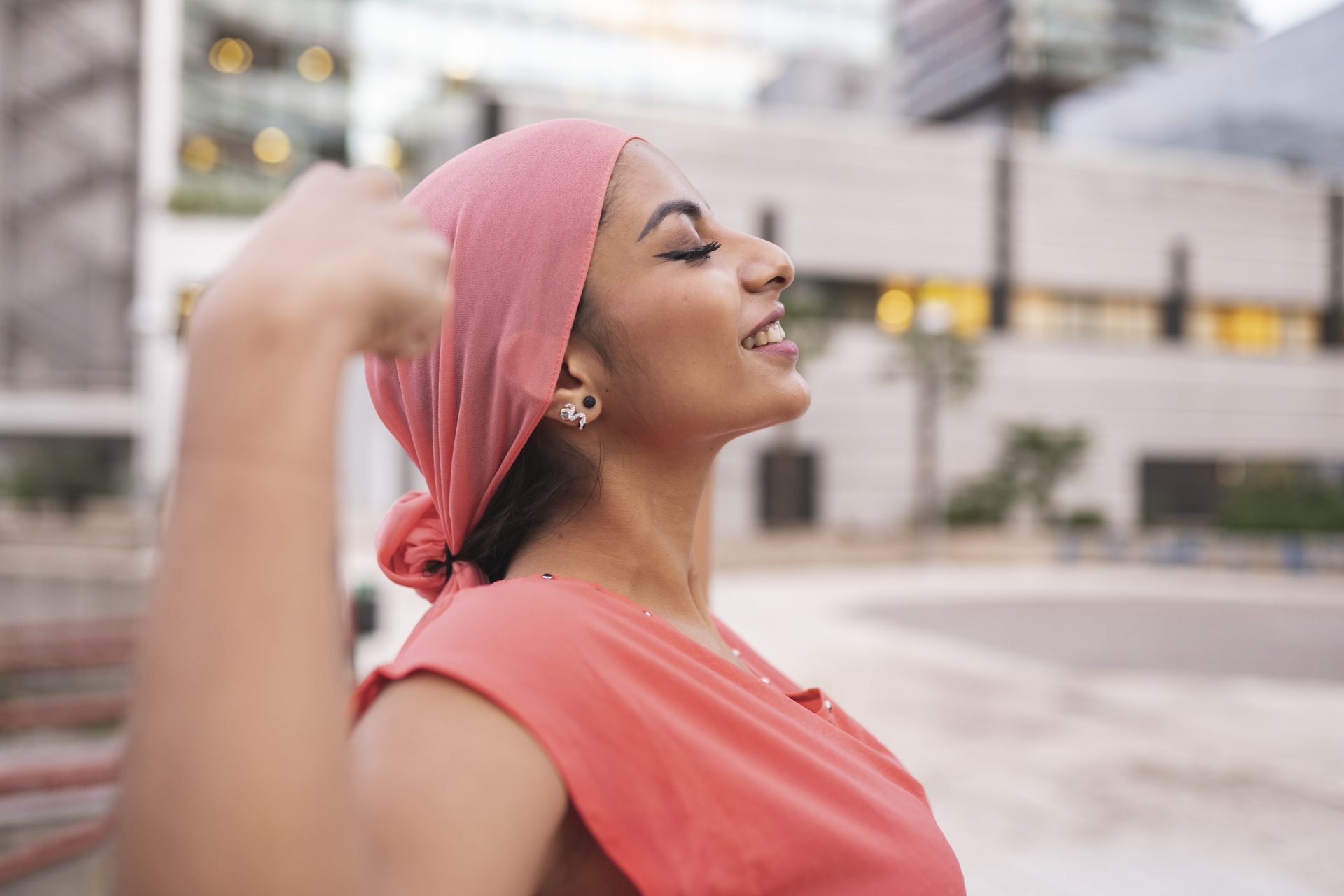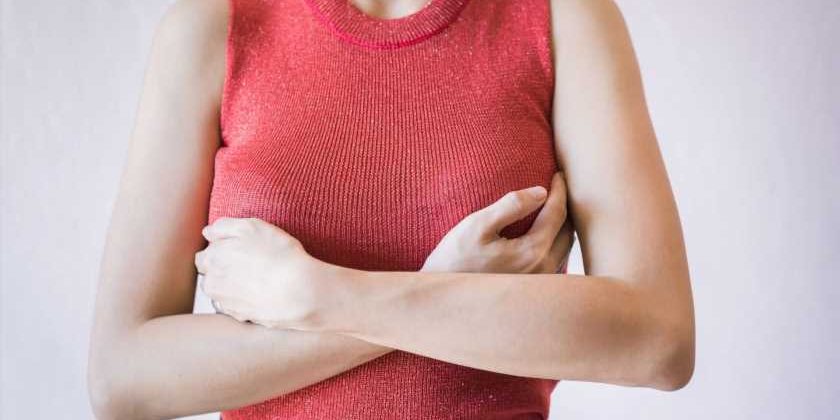Choosing to have a mastectomy can be difficult at any age, but it’s especially raw when you’re still in your 20s, as writer Darryl White knows only too well.
Face down in an MRI scanner, hands stretched above my head with my breasts dangling in between padded cushions, I think to myself, ‘How on earth did I end up here?’ I try to stay still and control my breathing as the machine hums and bleeps around my body.
An elective mastectomy isn’t something I ever thought I’d have to consider, especially at the age of 28. But thanks to clever predictive genetics testing and my mother receiving an ovarian cancer diagnosis during the height of the pandemic, there we were.
You may also like
“How spinning made me feel like me again after breast cancer”
What is the faulty BCRA gene?
While every human has the BRCA1 and BRCA2 gene, mutated or faulty versions can cause cells to grow out of control. This leads to higher risks of breast, ovarian, prostate and pancreatic cancer developing in all genders.
Cancer Research UK statistics confirm that women who have the BRCA1 or BRCA2 mutation have a 70% chance of developing breast cancer by the age of 80, compared to the risk of around 15% of the general population. It’s pretty rare, with just one in 400 people carrying the gene. I am that one of 400.
The faulty BRCA gene can be passed onto children from a positive parent, each child conceived having a 50% chance of receiving it. After my mum received both a cancer diagnosis and positive BRCA test at the age of 49, my siblings and I got the green light for genetics testing on the NHS. All we needed was a routine blood test and then it was a three-to-six-week wait for the results.
At first, I was apprehensive. I worried the reality of this information might alter the way that I decide to live my life and implicate choices I make for the future. I worried for my mum, who undoubtedly already felt responsible for putting us in this position, let alone the idea of one of us receiving a positive test.
The weeks passed and the results came in: three genetics tests, three separate phone calls for each sibling… and only one positive BRCA1 child.
Dealing with a positive diagnosis
For months, my positive result was the first thing I thought about when I woke up and the last thing on my mind at night. A barrage of new information swirling through my head and the weight of an increased risk of cancer now heavily on my back.
Phone calls were scheduled to discuss the prospect of elective precautionary treatment including a mastectomy and hysterectomy once I’d finished having kids – before I’d even begun thinking about starting a family. Suddenly IVF and pre-implantation genetic testing (PGD) became options, as a safeguard against passing the gene onto my future children.
And then there was the harsh reality of my mother’s aggressive chemotherapy being played out in front of me. I was consumed by it all, day in, day out.
I pushed through, saying the right things and smiling at the right times to family and friends. While I was relived for my brother and sister, I envied them. And I know they felt guilty that I had to take this journey all alone.
You may also like
Ovarian cancer postcode lottery: “It is a tragedy when a woman suffers from a potentially preventable cancer”
I found solace in pounding the treadmill at the gym, literally running through all my options. But my gut instinct was firm: a mastectomy with immediate reconstruction was the best option for me. I couldn’t get my head around those patients who find out they have the gene and prefer to wait and see.
Breast screening for those with the gene mutation starts at 35, with a scan only offered every two years. I was advised that I’d need to regularly check my breasts for any lumps, bumps or dimples in the meantime. But with that heavy 70% risk of breast cancer, I knew that I needed to reduce that number whatever the cost – even if it meant losing my breasts.
Choosing preventative surgery to reduce breast cancer risk
Surgery would allow me to take back control of my body and future, although I knew that it’d be a mental rollercoaster. My body would change completely which, for someone still in their 20s, was a massive concern.
I spent an afternoon talking through my decision with an NHS psychologist, becoming ever clearer that this was the right decision and that I could handle the reality of post-surgery reflection.
Once that weighty decision was out of the way, even more came along. Once my breasts had been removed by my consultant, a plastic surgeon would take over and reconstruct them during the same operation. I had the choice between implants, with an upkeep operation needing to take place every 10 years, or having breasts made from fat taken from my thighs, stomach or back – a longer, more permanent surgery with a greater recovery period and a bigger chance that it could fail.

The whole journey has been difficult to wrap my head around, but the thing that brought me to tears while at dinner with my boyfriend? My nipples.
Keeping my nipples increased my chances of breast cancer by 2%. It’s a personal choice whether you keep them or not, with options to have them tattooed back on post-surgery or having the surgeon craft ones from your own skin during the reconstruction procedure. If I chose to save mine, would I be contradicting the act of my mastectomy? I wanted to save any part of my body that I could.
Those big decisions have now been made and my name is firmly on the waiting list along with other wonderful humans choosing life. No doubt, I’ll face crises of confidence in the future but I’ll find comfort in knowing that I’ve taken action to ensure I’m able to enjoy life for as long as possible.
As for the short-term, I intend to spend this summer topless and making the most of whatever sunshine comes my way. If you see me on the beach, please mind your business.
If you or someone you know is struggling with a similar diagnosis, you can find help from Macmillan Cancer Support. Their free helpline operates 8am-8pm on 0808 808 00 00.
Images: Getty
Source: Read Full Article
